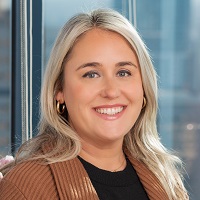How Do You Know When It's Time to Change Financial Advisers?
Sometimes a breakup is for the best. Here's how to handle 'the talk' and make the switch to a new professional who's a better fit for you.


Profit and prosper with the best of Kiplinger's advice on investing, taxes, retirement, personal finance and much more. Delivered daily. Enter your email in the box and click Sign Me Up.
You are now subscribed
Your newsletter sign-up was successful
Want to add more newsletters?

Delivered daily
Kiplinger Today
Profit and prosper with the best of Kiplinger's advice on investing, taxes, retirement, personal finance and much more delivered daily. Smart money moves start here.

Sent five days a week
Kiplinger A Step Ahead
Get practical help to make better financial decisions in your everyday life, from spending to savings on top deals.

Delivered daily
Kiplinger Closing Bell
Get today's biggest financial and investing headlines delivered to your inbox every day the U.S. stock market is open.

Sent twice a week
Kiplinger Adviser Intel
Financial pros across the country share best practices and fresh tactics to preserve and grow your wealth.

Delivered weekly
Kiplinger Tax Tips
Trim your federal and state tax bills with practical tax-planning and tax-cutting strategies.

Sent twice a week
Kiplinger Retirement Tips
Your twice-a-week guide to planning and enjoying a financially secure and richly rewarding retirement

Sent bimonthly.
Kiplinger Adviser Angle
Insights for advisers, wealth managers and other financial professionals.

Sent twice a week
Kiplinger Investing Weekly
Your twice-a-week roundup of promising stocks, funds, companies and industries you should consider, ones you should avoid, and why.

Sent weekly for six weeks
Kiplinger Invest for Retirement
Your step-by-step six-part series on how to invest for retirement, from devising a successful strategy to exactly which investments to choose.
Making a change is one of the hardest things to do, especially when it involves a trusted relationship. This is even truer when that relationship is with your financial adviser, a relationship that is built on discussing money and sharing some of your most personal dreams and fears.
Changing financial advisers can feel daunting. It’s a partnership rooted in trust and deep connection, and breaking up can be difficult to do, not just emotionally but logistically. It takes effort to find a new adviser, complete the onboarding paperwork, and then have the “breakup” conversation with your current adviser. But you are not alone in this journey — according to a recent YCharts survey, 75% of advisory clients left or considered leaving their advisers in 2023.
Is it a good idea to change financial advisers?
The decision to change financial advisers is purely a personal choice — only you and your partner (if you have one) know the right answer. Based on my nearly 20 years in the industry, I’ve seen many reasons why clients decide to switch. Here are a few key questions to help evaluate your current relationship with your adviser:
From just $107.88 $24.99 for Kiplinger Personal Finance
Become a smarter, better informed investor. Subscribe from just $107.88 $24.99, plus get up to 4 Special Issues

Sign up for Kiplinger’s Free Newsletters
Profit and prosper with the best of expert advice on investing, taxes, retirement, personal finance and more - straight to your e-mail.
Profit and prosper with the best of expert advice - straight to your e-mail.
- Do I feel that my adviser understands my short-term and long-term goals?
- Does my adviser really listen to my needs, desires and questions thoroughly?
- Do they give me peace of mind?
- Am I confident in the advice I am receiving, AND does my adviser follow up on my requests?
- Does my adviser provide the level of service and communication promised? Are they responsive and easy to reach during working hours?
- Does my adviser follow through and complete action items and hold me accountable for my own tasks?
- Is there a larger team that could continue serving me if something were to happen to my adviser?
If you answered “no” to any of these questions or feel in your gut that maybe you are no longer happy with this relationship, then it might be time to reassess your relationship and seek other options.
How do I switch from one financial adviser to another?
I won’t sugarcoat it — switching financial advisers can feel as overwhelming as going to the doctor or filing your taxes. It requires research, paperwork and gathering documentation, such as your most recent statements, estate plans and tax returns.
However, this effort is crucial. A good adviser will ask for this information to gain a comprehensive understanding of your financial situation. If they don’t, consider it a red flag —they might be too focused on numbers and not enough about advising on your whole financial picture.
There are several ways to find a new financial adviser, but here are a couple of suggestions:
- Ask someone you respect, such as a close friend, business executive or family member, to see if they have anyone they recommend.
- Use a third-party platform like Zoe Financial, SmartAsset or Wealthramp. These databases help pair investors with firms that participate in their platforms, and all advisers listed are vetted to help ensure they meet specific standards of expertise and professionalism.
- Visit a local branch of custodians like Charles Schwab and Fidelity Investments. They can refer you to a partner firm or connect you with their in-house advisers.
- Seek referrals from another trusted professional, such as your CPA, estate planning attorney, insurance broker, etc.
- Review top adviser lists, but understand the methodology of how the list was compiled — some focus on assets under management (AUM), while others may allow advisers to pay for placement.
Regardless of how you find potential advisers, I highly recommend interviewing multiple candidates. Each is a professional who can give you different perspectives and opinions of what you should be doing with your financial life. As you evaluate your options, I suggest prioritizing candidates who hold the CERTIFIED FINANCIAL PLANNER™ (CFP®) designation. This credential signifies that they’ve completed rigorous education and training, meet high ethical standards and are well-equipped to help guide you. Use each interaction as an opportunity to learn and, ultimately choose the adviser you feel most comfortable with and whose personality and working style align with you and your goals.
How do you break the bad news to your financial adviser?
After reflecting and deciding it’s time to move on and then taking the time to research and interview multiple advisers, the dreaded moment has arrived to tell your current adviser that you’re making a change.
Don’t chicken out now — you’ve got this! There are multiple ways you can inform your adviser that you’re making a switch. In my opinion, the best approach is to communicate directly, either via a phone call or an in-person meeting. Be prepared that they may offer you fee discounts or try to convince you to stay. However, stay true to your decision unless you genuinely feel compelled to reconsider. Remember why you began this process in the first place.
Another option is to draft an email explaining your decision and requesting that they work with your new adviser to make the transition seamless.
The last and my least favorite approach is to bypass the conversation altogether. You would simply not inform your adviser and ask your new adviser to create new accounts and execute transfer forms.
However, your current adviser or firm will be notified during this process, and they will likely reach out to you with questions, so it’s often better to just give them a heads-up!
Ultimately, changing financial advisers is a hard decision and requires a lot of work, but finding the right financial adviser for your needs is worth it. The relationship between you and your financial adviser should be a true partnership. A financial adviser guides you through major life events, from marriages and divorces to births, family dynamics and even your legacy. In this relationship, you should feel comfortable to ask the hard questions, trusting that your adviser understands your goals and provides the support you need.
When you find the right adviser, it can help lead to peace of mind knowing that everything in your financial life is in order and your loved ones are taken care of, even in your absence. Seek out the best — they’re out there!
Related Content
- Want to Hire a Remote Financial Adviser? What to Consider
- 5 Quick and Dirty Questions to Pick a Financial Adviser
- Advice-Only Financial Advisers Don't Touch Your Money
- A Virtual Financial Adviser Could Be the Right Fit for You
- Is Your Financial Adviser Doing a Good Job for You?
Profit and prosper with the best of Kiplinger's advice on investing, taxes, retirement, personal finance and much more. Delivered daily. Enter your email in the box and click Sign Me Up.

Kelli Kiemle holds multiple roles with Halbert Hargrove. As Managing Director of Growth and Client Experience, she sets the tone for the quality and character of Halbert Hargrove's client service relationships. She also manages the associate wealth advisers. Kelli is also responsible for overseeing the firm's wide-ranging marketing and communications initiatives, including their mentor program. She is also the Co-host of Halbert Hargrove's Fearless Money Talks podcast.
-
 Look Out for These Gold Bar Scams as Prices Surge
Look Out for These Gold Bar Scams as Prices SurgeFraudsters impersonating government agents are convincing victims to convert savings into gold — and handing it over in courier scams costing Americans millions.
-
 How to Turn Your 401(k) Into A Real Estate Empire
How to Turn Your 401(k) Into A Real Estate EmpireTapping your 401(k) to purchase investment properties is risky, but it could deliver valuable rental income in your golden years.
-
 My First $1 Million: Retired Nuclear Plant Supervisor, 68
My First $1 Million: Retired Nuclear Plant Supervisor, 68Ever wonder how someone who's made a million dollars or more did it? Kiplinger's My First $1 Million series uncovers the answers.
-
 How to Turn Your 401(k) Into A Real Estate Empire — Without Killing Your Retirement
How to Turn Your 401(k) Into A Real Estate Empire — Without Killing Your RetirementTapping your 401(k) to purchase investment properties is risky, but it could deliver valuable rental income in your golden years.
-
 Don't Bury Your Kids in Taxes: How to Position Your Investments to Help Create More Wealth for Them
Don't Bury Your Kids in Taxes: How to Position Your Investments to Help Create More Wealth for ThemTo minimize your heirs' tax burden, focus on aligning your investment account types and assets with your estate plan, and pay attention to the impact of RMDs.
-
 Are You 'Too Old' to Benefit From an Annuity?
Are You 'Too Old' to Benefit From an Annuity?Probably not, even if you're in your 70s or 80s, but it depends on your circumstances and the kind of annuity you're considering.
-
 In Your 50s and Seeing Retirement in the Distance? What You Do Now Can Make a Significant Impact
In Your 50s and Seeing Retirement in the Distance? What You Do Now Can Make a Significant ImpactThis is the perfect time to assess whether your retirement planning is on track and determine what steps you need to take if it's not.
-
 Your Retirement Isn't Set in Stone, But It Can Be a Work of Art
Your Retirement Isn't Set in Stone, But It Can Be a Work of ArtSetting and forgetting your retirement plan will make it hard to cope with life's challenges. Instead, consider redrawing and refining your plan as you go.
-
 The Bear Market Protocol: 3 Strategies to Consider in a Down Market
The Bear Market Protocol: 3 Strategies to Consider in a Down MarketThe Bear Market Protocol: 3 Strategies for a Down Market From buying the dip to strategic Roth conversions, there are several ways to use a bear market to your advantage — once you get over the fear factor.
-
 Dow Adds 1,206 Points to Top 50,000: Stock Market Today
Dow Adds 1,206 Points to Top 50,000: Stock Market TodayThe S&P 500 and Nasdaq also had strong finishes to a volatile week, with beaten-down tech stocks outperforming.
-
 Why Picking a Retirement Age Feels Impossible (and How to Finally Decide)
Why Picking a Retirement Age Feels Impossible (and How to Finally Decide)Struggling with picking a date? Experts explain how to get out of your head and retire on your own terms.